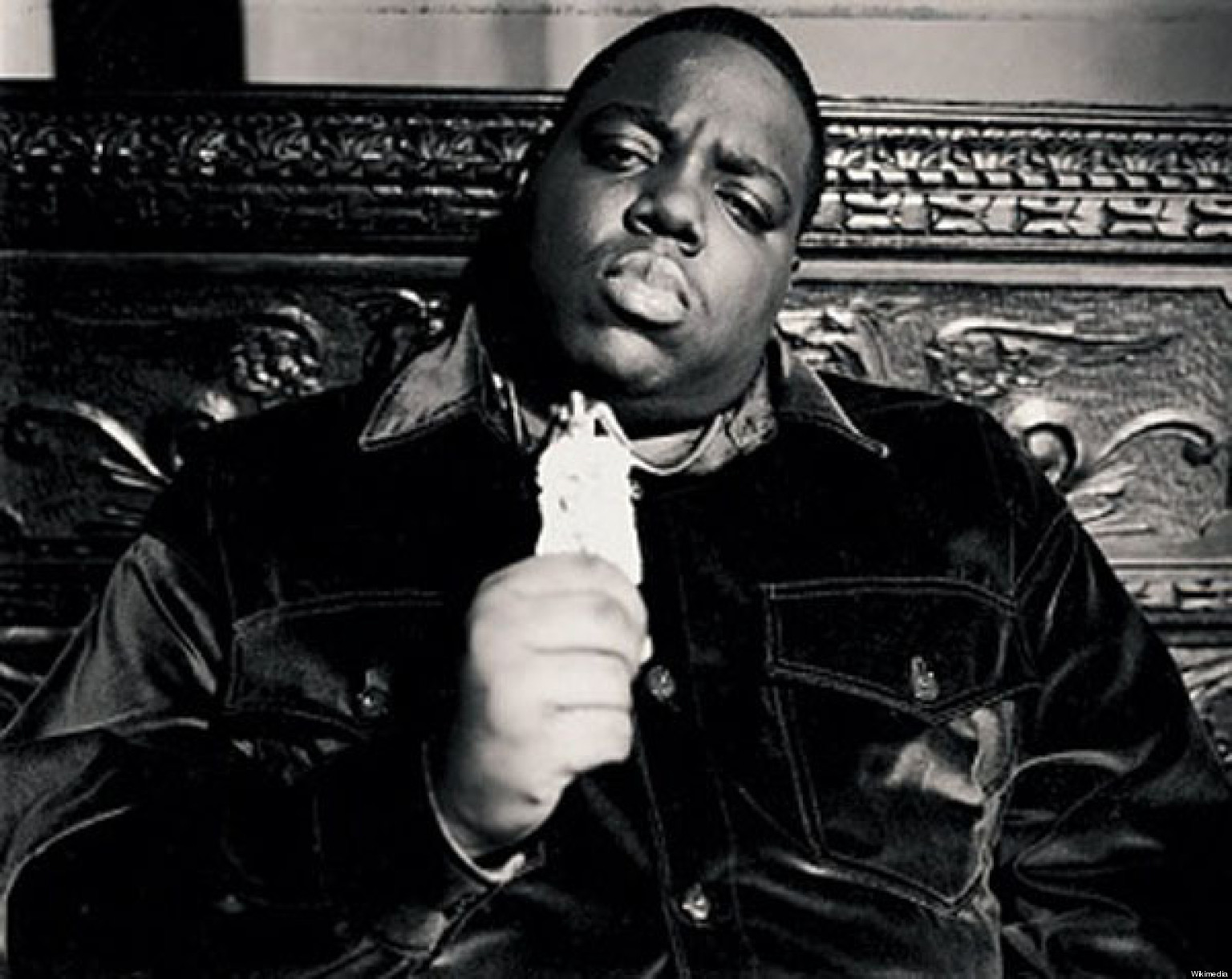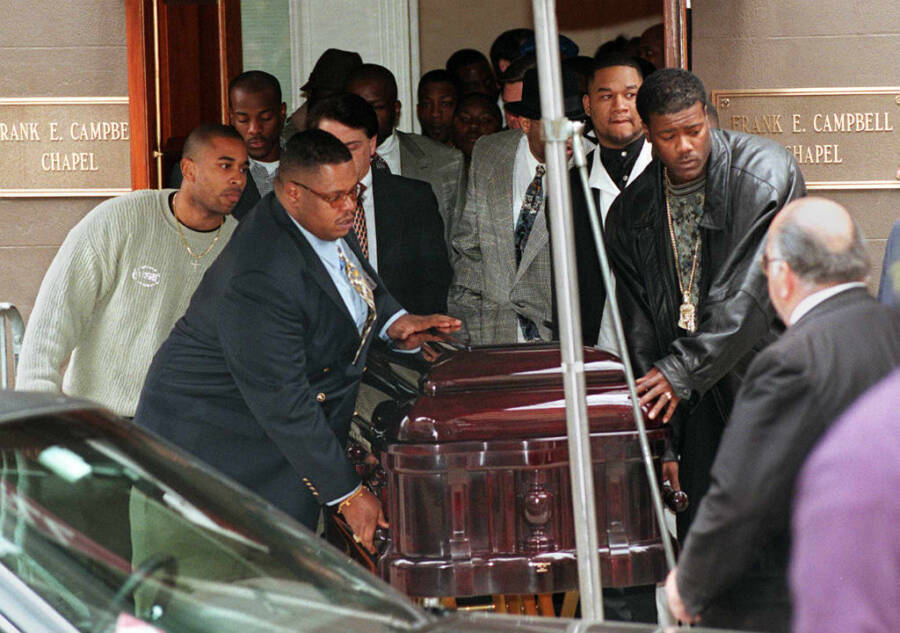The passing of The Notorious B.I.G., also known as Biggie Smalls, remains one of the most significant moments in music history. His death date, March 9, 1997, marked the end of an era that left an indelible mark on the hip-hop industry and pop culture as a whole. In this article, we will delve into the details surrounding Biggie's death, exploring the events that led up to that fateful day, and how his legacy continues to thrive.
Christopher Wallace, professionally known as The Notorious B.I.G., was not just a rapper but a cultural icon. His music transcended boundaries, touching the lives of millions across the globe. Even after his untimely death, his influence remains strong, inspiring new generations of artists and fans alike.
This article aims to provide a comprehensive exploration of the circumstances surrounding Biggie's death date, March 9, 1997, while honoring his life and contributions to music. Let’s take a closer look at this legendary figure, his impact, and the events that unfolded on that tragic day.
Read also:Voices In The Lion King Movie An Indepth Exploration
Table of Contents
- Biography of The Notorious B.I.G.
- Overview of Biggie's Death
- Circumstances Surrounding the Death
- Investigation and Conspiracy Theories
- Biggie's Legacy
- Impact on Music Industry
- Personal Life Insights
- Cultural Significance
- Tributes and Memorials
- Conclusion
Biography of The Notorious B.I.G.
The Notorious B.I.G., born Christopher George Latore Wallace on May 21, 1972, in Brooklyn, New York, was a rapper whose influence extended far beyond the confines of the music industry. Below is a brief overview of his life:
Data and Facts
| Full Name | Christopher George Latore Wallace |
|---|---|
| Date of Birth | May 21, 1972 |
| Place of Birth | Brooklyn, New York |
| Death Date | March 9, 1997 |
| Occupation | Rapper, Songwriter |
Overview of Biggie's Death
Biggie's death date, March 9, 1997, shocked the world. The rapper was fatally shot in a drive-by shooting in Los Angeles, California. This tragic event left fans and the music community reeling, struggling to come to terms with the loss of such a monumental figure.
Circumstances Surrounding the Death
On the evening of March 9, 1997, Biggie attended a music industry event, the Soul Train Music Awards, in Los Angeles. After the event, he was riding in a convoy when a red Cadillac pulled up beside his vehicle and opened fire. Biggie was hit multiple times and succumbed to his injuries shortly after.
Events Leading Up to the Incident
Several factors contributed to the tense environment surrounding Biggie's death:
- Heightened tensions between East Coast and West Coast rappers.
- Personal disputes and rivalries within the music industry.
- Security concerns that were reportedly overlooked during the event.
Investigation and Conspiracy Theories
The investigation into Biggie's death remains one of the most high-profile unsolved cases in music history. Despite numerous leads and theories, the true perpetrator has never been identified.
Conspiracy Theories
Over the years, several conspiracy theories have emerged:
Read also:2027 The Year Of The Chinese Zodiac Everything You Need To Know
- Some speculate that rival rapper Tupac Shakur orchestrated the attack.
- Others believe it was a result of internal conflicts within Biggie's own circle.
- There are also theories involving law enforcement and organized crime.
Biggie's Legacy
Despite the tragedy of his death, Biggie's legacy continues to inspire millions. His music remains timeless, and his impact on the hip-hop genre is undeniable.
Biggie's unique storytelling ability, combined with his authentic voice, set him apart from his contemporaries. Songs like "Juicy," "Big Poppa," and "Hypnotize" remain staples in the music industry, showcasing his unparalleled talent.
Impact on Music Industry
Biggie's influence extends beyond his music. He paved the way for future artists, demonstrating the power of authenticity and storytelling in hip-hop.
Influence on Future Artists
Many modern rappers cite Biggie as a major influence. His ability to weave intricate narratives into his lyrics has inspired countless artists to follow in his footsteps.
Personal Life Insights
Beyond his public persona, Biggie was a devoted family man. He was married to R&B singer Faith Evans and had two children. His personal life was often overshadowed by his professional achievements, but his loved ones remain an integral part of his story.
Cultural Significance
Biggie's death date, March 9, 1997, not only marked the end of a remarkable life but also highlighted the cultural significance of hip-hop. His music addressed issues such as poverty, crime, and societal struggles, resonating with audiences worldwide.
Tributes and Memorials
Since his passing, numerous tributes and memorials have been dedicated to Biggie:
- A star on the Hollywood Walk of Fame honors his contributions to music.
- Annual events and concerts celebrate his life and legacy.
- Fans continue to pay homage through social media and community events.
Conclusion
Biggie's death date, March 9, 1997, remains a somber reminder of the impact he had on the world. His music, legacy, and cultural significance continue to inspire and influence new generations. As we reflect on his life and contributions, let us celebrate the indelible mark he left on the music industry.
We encourage readers to share their thoughts and memories of Biggie in the comments section below. Additionally, explore other articles on our site to learn more about influential figures in music history.
Remember, Biggie's story is not just about his death; it's about the life he lived, the music he created, and the legacy he left behind.


